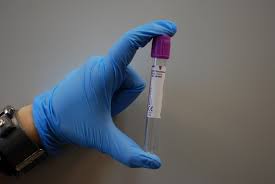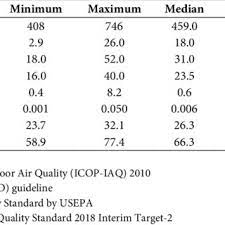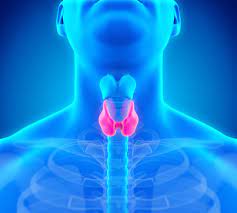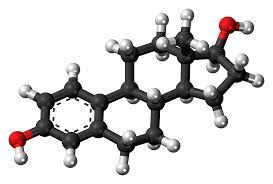Buy Female Blood Diagnostics
Video Link: https://vimeo.com/187730091
Video Download: Female Blood Work Panel
Video Stream: Female Blood Work Panel
Female Blood Work Panel for Hormone Deficiency Analysis
Comprehensive Blood Work Panel for Women
In order to effectively assess our patients' need for Hormone Replacement Therapy, we perform a battery of diagnostic blood tests in order to provide a clear and total picture of your overall health. We understand that there are a number of different medical conditions which can mimic the symptoms of the  Hormone Deficiencies that we treat, so it is important and vitally necessary to rule out as many related conditions as possible in order to provide our most effective diagnosis.
Hormone Deficiencies that we treat, so it is important and vitally necessary to rule out as many related conditions as possible in order to provide our most effective diagnosis.
Complete Blood Count With Platelet/Differential
The purpose of this test is to analyze a number of different aspects of your blood, including hematocrit, hemoglobin, white blood cells, red blood cells, and platelets. This is a very common test, frequently used in ordinary check-ups. If any of the measurements seem off, then the physician can perform further testing to uncover underlying problems.
There are many tests that are performed in a Complete Blood Count. These are some of the most important things being measured:
White Blood Cells These cells are responsible for fighting disease within your body. If you have too few, your risk of infection and illness increases dramatically. If you have too many, this indicates that you are currently fighting a disease or infection, or may have a condition that is causing the body to produce too many white blood cells.
Red Blood Cells These cells transport oxygen throughout the body. If the bloodstream contains too few Red Blood Cells, this indicates a medical condition known as anemia.
Hemoglobin âae The Red Blood Cells use Hemoglobin in order to move oxygen around the body. Hemoglobin binds oxygen to Red Blood Cells for transport. They are also responsible for absorbing Carbon Dioxide and delivering it to the lungs for disposal. Low Levels of Hemoglobin are a sign of Anemia.
Hematocrit This test shows the concentration of Red Blood Cells within your bloodstream. Low-density RBC counts can be a sign of a number of different medical disorders, including leukemia and anemia. Generally, a high RBC count is a sign you aren't drinking enough water.
Platelets Platelets are responsible for the process of blood clotting which works to keep your bloodstream a closed system. People without enough platelets take longer for cuts and bruises to heal, and people with too many are at risk of dangerous conditions associated with blood clottings such as stroke and heart disease.
Comprehensive Metabolic Panel
The Comprehensive Metabolic Panel is another important series of blood tests. Unlike the CBC, which measures the concentration and density of the various organelles of the bloodstream, the Comprehensive Metabolic Panel measures the levels of a number of different metabolic elements and  compounds that are found in the bloodstream. The following are some important aspects of your health that are analyzed through these tests:
compounds that are found in the bloodstream. The following are some important aspects of your health that are analyzed through these tests:
Blood Sugar The human body primarily uses glucose as a source of energy. The body uses insulin secreted from the pancreas in order to deliver glucose to target organs for utilization. If there is too much sugar in the bloodstream, this can be a sign of Diabetes or Insulin Resistance, because insulin is not effectively delivering sugar, causing it to build up in the bloodstream.
Liver Function The liver is responsible for taking various materials that we consume and converting them into usable products for the body. The liver produces certain vitamins that we need to be healthy, and if certain vitamin levels are low, this is a sign that Liver Function may be impaired. The Liver also plays a key role in fat, protein, and glucose balance.
Kidney Function The kidneys are the primary filtration system for the body. If there is too much water or the concentration of certain minerals or salts is too high, the kidneys filter them out for evacuation. If these tests show that mineral concentrations are too high in the bloodstream, the kidneys may not be functioning effectively.
Electrolyte/Fluid Balance Electrolytes are various elements and molecules, including potassium and sodium, which the body uses in order to balance the level of fluid concentration, keeping the cells at a perfect level of fluid balance. Any form of imbalance can have a negative impact on overall healthy and normal function.
Lipid Blood Panel
This is a series of tests that are used in order to assess the health of your cardiovascular system through the concentrations of a number of different lipid compounds. The Lipid Blood Panel primarily assesses four primary factors:
Total Cholesterol This result shows the total concentration of cholesterol in your bloodstream.
HDL Cholesterol This result indicates the concentration of High-Density Lipoprotein in your bloodstream. Higher concentrations are better for your health.
LDL Cholesterol High concentrations of Low-Density Lipoproteins, on the other hand, can lead to a number of different negative health consequences and are a sign of poor health.
Triglycerides are considered the most dangerous form of cholesterol to have in elevated concentrations. High Triglyceride Levels are associated with hardened arteries, stroke, and heart disease.
Using the four values above, two other lipid assessments can also be calculated:
The ratio of High-Density Lipoprotein to Total Cholesterol
The concentration of Very Low-Density Lipoprotein
Thyroid Blood Panel
The Thyroid Blood Panel is a collection of blood tests intended to measure the function of the Thyroid Gland by the concentration of various Thyroid hormones in the bloodstream. Thyroxine is often referred to simply as Thyroid Hormone. Thyroxine is important to overall health because it has an overall stimulative effect on the function of the cardiovascular system and metabolism. Low Thyroxine Levels can lead to obesity and fatigue, as well as a number of other medical conditions.
overall stimulative effect on the function of the cardiovascular system and metabolism. Low Thyroxine Levels can lead to obesity and fatigue, as well as a number of other medical conditions.
The Lipid Blood Panel provides four measurements essential to evaluating hormone health:
Thyroid-Stimulating Hormone This hormone also referred to as TSH, is a precursor hormone produced by the Thyroid which controls all other hormones produced by the gland.
Total Thyroxine Total Thyroxine refers to the total concentration of Thyroxine present in the bloodstream.
Free Thyroxine This is the only form of Thyroxine that is biologically available to the body for use. Low levels of Free Thyroxine indicate that the body is not producing a sufficient level of the hormone.
Free Tri-iodothyronine -This is another thyroid hormone that is vitally important for normal, regular metabolism. This test measures the amount of the hormone that is directly available to the body for use.
Cortisol Testing
This test simply measures the concentration of cortisol present in the bloodstream. Cortisol is a hormone central to the physiological response known as fight-or-flight. The positive goal of cortisol is to help us think on our feet in tense situations and to channel out feelings of pain, but constantly elevated levels of cortisol are very unhealthy and lead to a number of consequences for long-term health. Cortisol also plays a role in regulating a number of other aspects of healthy function, including:
Bone Health
Nervous System Response
Immune System Response
Circulatory Health
Metabolism
Keeping Cortisol at healthy levels is necessary to maintain the proper function of all of these systems, and excess production of cortisol can lead to numerous health problems.
DHEA Sulfate Testing
DHEA Sulfate is an androgen hormone produced by the adrenal glands which is a precursor to sex hormones such as Testosterone and Estrogen. Although some levels of DHEA are perfectly healthy in women, excess levels may be a sign that the body is not processing the hormone effectively into feminine hormones, which can lead to problems.
High DHEA Levels have the capacity to induce certain male characteristics such as increased hair growth in women. Elevated DHEA Levels can also cause the immune system to go into overdrive, causing many physiological issues and also draining the body of the cortisol necessary for normal health.
Estradiol Testing
Estradiol is the most vital form of estrogen produced by the female body. During development, the hormone is centrally responsible for primary and secondary sexual development, and in adulthood, the hormone is important for the maintenance of proper physiological weight distribution.
During Perimenopause and Menopause, Estradiol Levels will often fluctuate significantly and eventually drop significantly. Estrogen Hormone Replacement Therapy can be a means to alleviate the abrupt physiological changes associated with Menopause in order to make them easier to handle. Estradiol Testing will provide you with a clear picture of your feminine hormone health and help your physician decide if you may benefit from Estrogen Replacement.
Estradiol Testing will provide you with a clear picture of your feminine hormone health and help your physician decide if you may benefit from Estrogen Replacement.
Pregnenolone Testing
Like DHEA, Pregnenolone is another precursor hormone necessary for the healthy production of sex hormones. Pregnenolone is also incredibly important for neurological health, and the hormone is found in high concentrations in neural tissues. Like HGH and Testosterone, Pregnenolone Levels drop off in the body as we age. Pregnenolone plays an important role in keeping Cortisol Levels in check, and as Pregnenolone Levels drop, Cortisol Production Increases.
Pregnenolone is important to normal health because it plays a huge role in regulating the production of other hormones. If the body doesn't have enough Pregnenolone, then it will suffer both directly as a result of deficiency, and indirectly because the body can no longer effectively produce other vital hormones as efficiently.
Progesterone Testing
Progesterone is produced by both sexes, but in the highest concentrations in women. Progesterone is produced in its highest quantities by the ovaries and the placenta, although it is also secreted by the adrenal glands. Elevated levels of Progesterone are widely responsible for the side effects associated with Pre-Menstrual Syndrome, including mood swings, bloating, and breast tenderness.
Abnormally low levels of Progesterone can cause a number of significant symptoms. If you are a woman experiencing a high level of stress with no discernible cause, this may be the result of Progesterone Deficiency. Estrogen Levels and Progesterone Levels are correlated, and a proper balance is necessary between the two in order to be optimally healthy.
Serum Ferritin Test
This straightforward test is performed in order to evaluate the iron levels in your bloodstream. The level of iron in your blood effectively correlates with the amount of iron that you have stored in your body. Low Levels of Serum Ferritin are a strong sign of Anemia and can also be a sign of Restless Leg Syndrome.
High Levels of Serum Ferritin are a sign that the body may be fighting an infection or disease. Many vegetarians suffer from Low Serum Ferritin Levels, with an incidence as high as forty percent.
Follicle Stimulating Hormone and Luteinizing Hormone Testing
These two hormones are central to the proper sexual function of both men and women and play different roles according to the sex of the individual. In women, Follicle Stimulating Hormone is necessary for the proper development of the Ovarian Follicles. The hormone also encourages the ovaries to produce the female sex hormones Progesterone and Estrogen. FSH Testing can also be used in order to evaluate the fertility potential of a woman as she grows older.
she grows older.
Luteinizing Hormone Testing is able to effectively assess a woman's menstrual and fertility state. As women enter menopause, their Luteinizing Hormone Levels increase dramatically, so this test is very useful for assessing when a patient should begin Estrogen Replacement Therapy. Luteinizing Hormone Levels in the bloodstream increase when LH is no longer being effectively utilized by the body.
Hemoglobin A1C Testing
Hemoglobin is responsible for sugar transport through the bloodstream. The Hemoglobin A1C Test measures the percentage of Hemoglobin in your bloodstream which is currently carrying sugar. If you have too much sugar in your bloodstream, this is a sign that your body is not distributing sugar properly, which is a sign of diabetes. For patients that are currently diabetic, the Hemoglobin A1C Test is used in order to assess the risk of experiencing health complications as a result of diabetes.
IGF-1 Testing
IGF-1 stands for Insulin-like Growth Factor-One. This hormone is produced when Human Growth Hormone passes through the liver and is broken down into various Growth Factors. IGF-1 Testing is the strongest indicator of Human Growth Hormone Deficiency because IGF-1 Levels remain relatively stable in the bloodstream on a daily basis.
HGH Testing is not an effective means to diagnose HGH Deficiency because the hormone is released by the Pituitary Gland in quick pulses, and the liver metabolizes the hormone very quickly. If your IGF-1 Levels are considered too low, and you are experiencing symptoms of Human Growth Hormone Deficiency, you may be a candidate for HGH Hormone Replacement Therapy.
Fasting Insulin Testing
This test measures the concentration of Insulin in the bloodstream. Insulin is used in order to transport sugars and carbohydrates from the blood to target cells, and elevated levels of Insulin are a sign of Insulin Resistance. If you consume too many sugars and carbs, your body will produce an excess of Insulin in order to properly distribute those calories.
If you produce too much insulin for too long, then your body will start to develop a tolerance for the hormone, meaning that it will take more and more Insulin to properly move the carbs and sugars out of your bloodstream. Eventually, this can lead to Type-Two Diabetes, as the level of sugar in your bloodstream outstrips the ability of the maximum amount of Insulin that your body can produce to properly evacuate it from the blood.
Sex Hormone-Binding Globulin Testing
This glycoprotein is responsible for the transport of the sex hormones through the bloodstream. SHBG is modulated through a number of different factors. Elevated transcortin, prolactin, androgen, insulin, HGH, and IGF-1 concentrations are SHBG Inhibitors, and thyroxine and estrogen are SHBG Activators.
Abnormally low levels of SHBG may be a sign that symptoms of Sex Hormone Deficiency are not the result of low levels of Testosterone and Estrogen themselves, but rather, an inability to effectively transport the hormones to target organs for activation.
Testosterone Total and Free Testing
This test is used to directly evaluate Testosterone production in both men and women. Total Testosterone refers to all Testosterone that is present in the bloodstream. Free Testosterone indicates the concentration of Testosterone in the bloodstream which is flowing unbound to any enzyme.
In order for Testosterone to be utilized and distributed effectively, it needs to be bound to SHBG circulating through the bloodstream.
If Free Testosterone  Levels are abnormally high, this means that the body is not distributing Testosterone effectively. If both Bound and Unbound Testosterone are low, then this means that the body is producing an insufficient level of Testosterone.
Levels are abnormally high, this means that the body is not distributing Testosterone effectively. If both Bound and Unbound Testosterone are low, then this means that the body is producing an insufficient level of Testosterone.
In women, Testosterone is vital for optimal health, even if it is necessary in far lower concentrations than it is in males. In women, Testosterone is intricately related to sexuality, both with regard to sex drive and sexual ability. Feminine Low-T is also a sign of Menopause, and Testosterone Replacement Therapy may be an effective means to both alleviate the symptoms of Menopause and increase libido and sexual function.
Contact us for a FREE, no-obligation discussion about the benefits of Hormone Replacement Therapy (HRT)
- What Is Male Hypogonadism? [Last Updated On: December 22nd, 2024] [Originally Added On: July 18th, 2020]
- What Is Low-t And How Can It Effect My Life? [Last Updated On: September 20th, 2024] [Originally Added On: July 22nd, 2020]
- Identification Of Late Onset Hypogonadism In Middle Aged And Elderly Men [Last Updated On: October 21st, 2024] [Originally Added On: July 24th, 2020]
- Importance Of Hormone Balance For A Man's Health [Last Updated On: September 18th, 2024] [Originally Added On: July 25th, 2020]
- Subcutaneous Injection Procedures [Last Updated On: September 17th, 2024] [Originally Added On: July 30th, 2020]
- Genetics And Gene Therapy. What Are Genes? [Last Updated On: September 15th, 2024] [Originally Added On: August 2nd, 2020]
- Whey Protein [Last Updated On: September 13th, 2024] [Originally Added On: August 3rd, 2020]
- Hormone Replacement Therapy Blood Testing [Last Updated On: September 14th, 2024] [Originally Added On: August 7th, 2020]
- Gh-rh [Last Updated On: June 6th, 2025] [Originally Added On: August 12th, 2020]
- How Does Growth Hormone Testing Work? [Last Updated On: February 13th, 2025] [Originally Added On: August 15th, 2020]
- Important Figures In Hormone Replacement Therapy Research [Last Updated On: May 16th, 2025] [Originally Added On: August 16th, 2020]
- Certified Age-management And Longevity Professionals [Last Updated On: February 17th, 2025] [Originally Added On: August 28th, 2020]
- Bio-identical Genotropin Hormone Replacement Therapy [Last Updated On: May 6th, 2025] [Originally Added On: September 4th, 2020]
- HGH Injections [Last Updated On: February 28th, 2023] [Originally Added On: March 7th, 2021]
- Growth Hormone Injection Treatment For Women [Last Updated On: February 17th, 2025] [Originally Added On: March 8th, 2021]
- Buy Growth Hormone Injection Treatment For Men [Last Updated On: February 19th, 2025] [Originally Added On: March 9th, 2021]
- The Conscious Evolution Institute For Quality Hormone Replacement Therapy [Last Updated On: October 29th, 2024] [Originally Added On: March 10th, 2021]
- 25 Foods That Can Improve Your Health [Last Updated On: October 28th, 2024] [Originally Added On: March 11th, 2021]
- Change Your Life With A Conscious Evolution Lifestyle [Last Updated On: February 19th, 2025] [Originally Added On: March 12th, 2021]
- Understanding The Various Causes Of Human Obesity [Last Updated On: February 19th, 2025] [Originally Added On: March 13th, 2021]
- Male Hormone Replacement Therapy Blood Panel [Last Updated On: February 18th, 2025] [Originally Added On: March 15th, 2021]
- Getting Started With Hormone Replacement Therapy [Last Updated On: February 19th, 2025] [Originally Added On: March 17th, 2021]
- Low Testosterone and other Sex Drive Killers that Cause Low Libido in Men [Last Updated On: February 14th, 2025] [Originally Added On: May 1st, 2022]
- The effects of Human Growth Hormone (HGH) on the skin [Last Updated On: February 18th, 2025] [Originally Added On: May 8th, 2022]
- Testicle Tanning – See Through the Hype [Last Updated On: February 19th, 2025] [Originally Added On: May 30th, 2022]
- Lean Muscle Mass Critically Important to Healthy Aging [Last Updated On: February 18th, 2025] [Originally Added On: June 28th, 2022]
- Can Vitamin B6 Help Relieve Anxiety? [Last Updated On: February 14th, 2025] [Originally Added On: August 2nd, 2022]
- A Chemical Found in Common Household Items May Disrupt a Hormone Necessary for Healthy Pregnancy [Last Updated On: March 25th, 2025] [Originally Added On: August 2nd, 2022]
- Matching Libidos Ensure Healthy Relationships [Last Updated On: March 5th, 2025] [Originally Added On: December 11th, 2022]
- How Fluctuating Libidos Affect Aging Men and Women [Last Updated On: February 19th, 2025] [Originally Added On: January 10th, 2023]
- Adopting a Conscious Evolution Lifestyle for Improved Health and Longevity [Last Updated On: February 9th, 2025] [Originally Added On: February 9th, 2025]
- Male Hormone Replacement Therapy: Diagnostic Blood Test Regime [Last Updated On: February 14th, 2025] [Originally Added On: February 13th, 2025]
- Unleash the Power of Vitamin B6: The Natural Antidote to Anxiety! [Last Updated On: February 14th, 2025] [Originally Added On: February 14th, 2025]
- The Impact of Human Growth Hormone Deficiency in Men [Last Updated On: February 16th, 2025] [Originally Added On: February 15th, 2025]
- Maintaining Lean Muscle Mass: A Crucial Facet of Healthy Aging [Last Updated On: February 17th, 2025] [Originally Added On: February 15th, 2025]
- Introduction to Testicle Tanning [Last Updated On: February 11th, 2025] [Originally Added On: February 16th, 2025]
- Introduction to Hormone Replacement Therapy [Last Updated On: February 17th, 2025] [Originally Added On: February 17th, 2025]
- Importance of Matching Libidos for Healthy Relationships [Last Updated On: February 19th, 2025] [Originally Added On: February 19th, 2025]
Word Count: 2504






